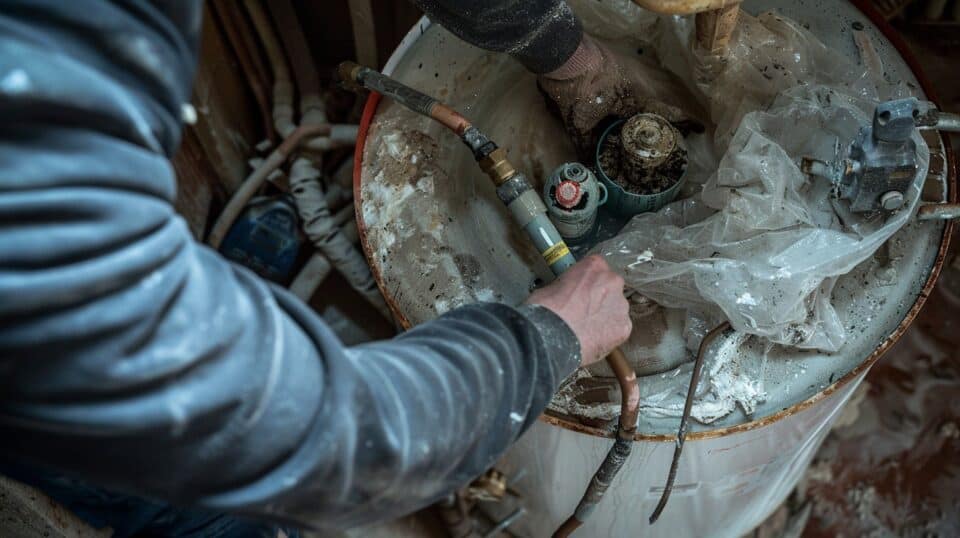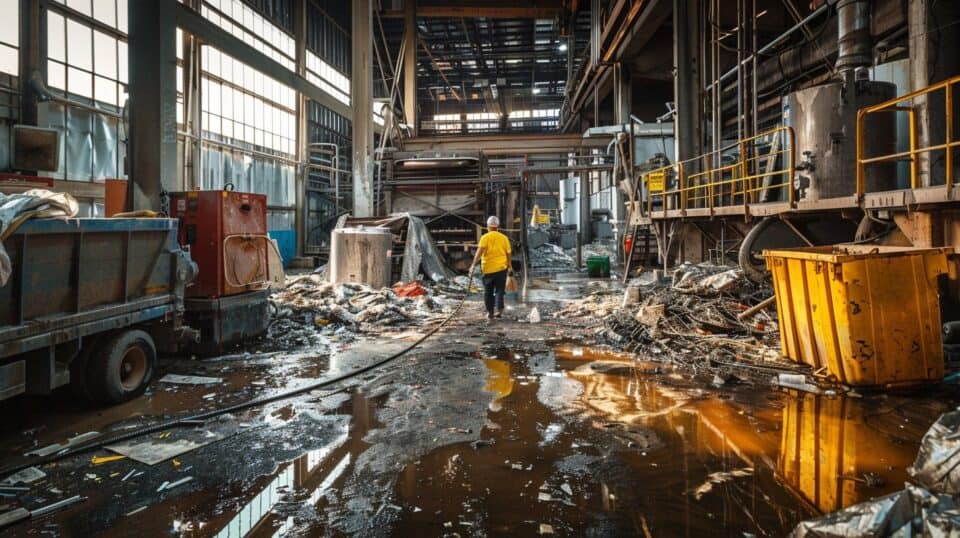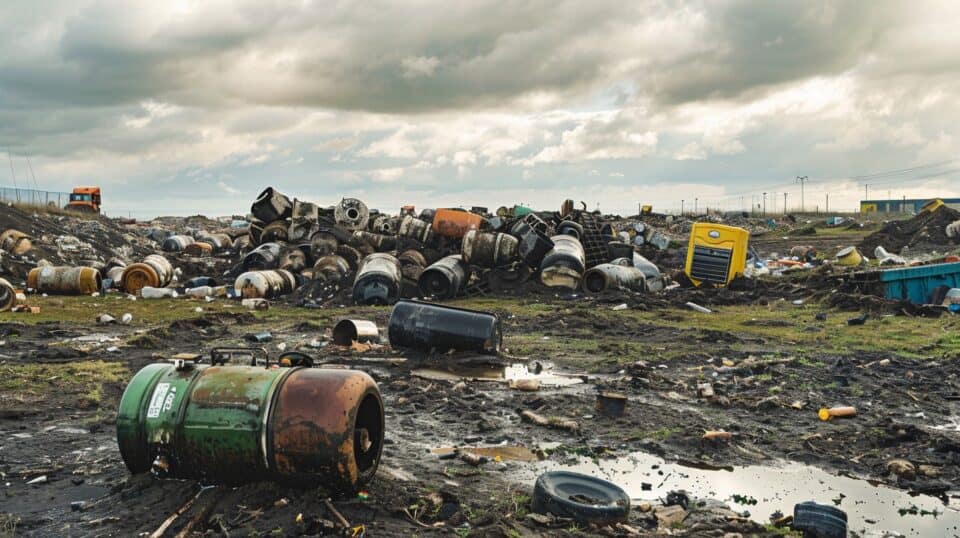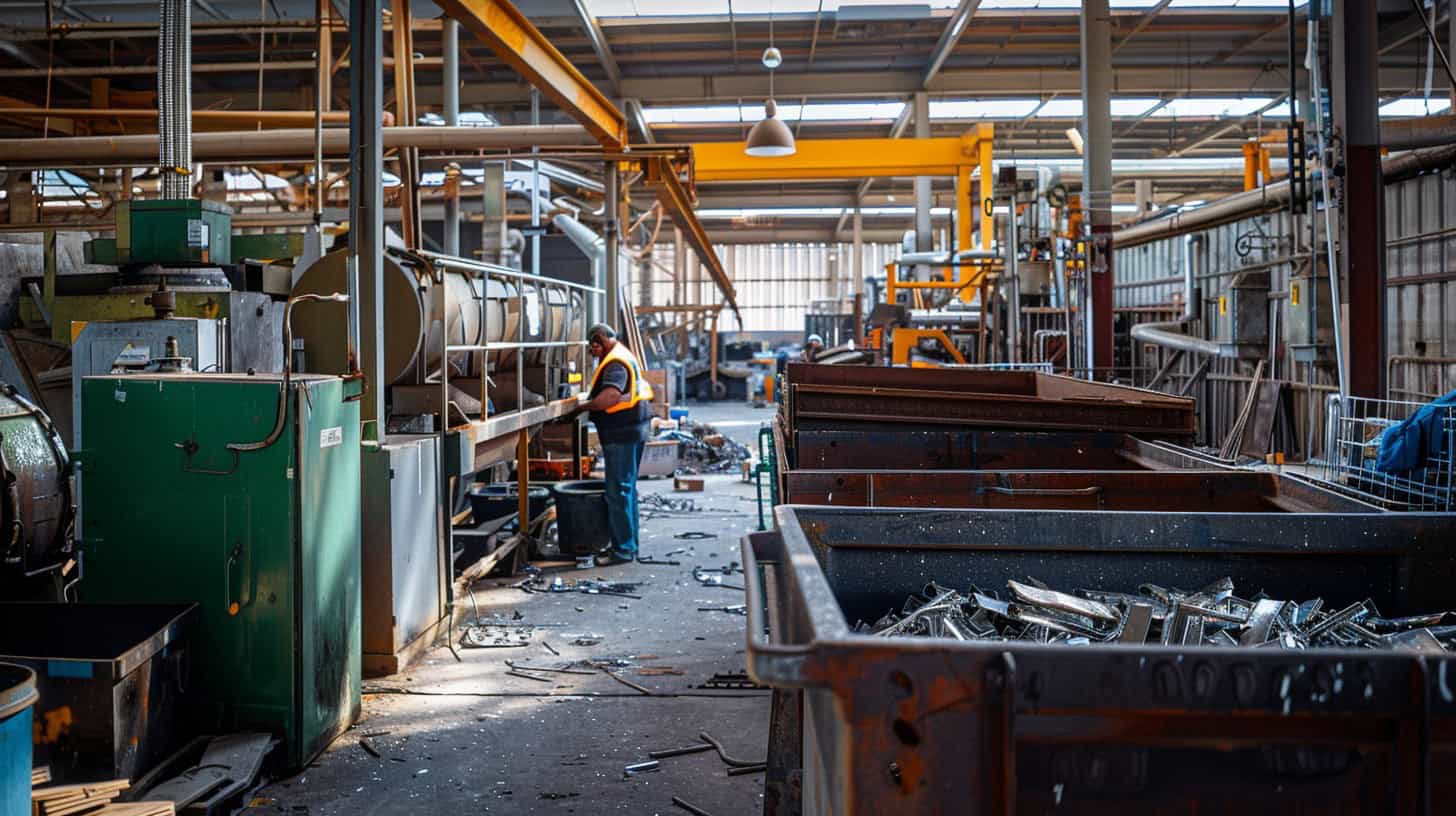Disposing of your old water heater can seem like a daunting task, but it doesn’t have to be. With eco-friendly options available, you can ensure proper disposal while being kind to the environment.
The average lifespan of a water heater is about 10–15 years—so it’s crucial to know what to do when yours reaches the end. 1
Drawing from my extensive experience in waste management and home maintenance, we’ll explore four easy methods for disposing of your hot water heater responsibly. Whether you’re recycling at local facilities or hiring professional removal services, this guide covers everything you need…
Step by step. 2
Key Takeaways
Recycle at a Local Facility: Many centers accept old water heaters and can recycle materials like aluminum, steel, brass, and copper. Some offer pick-up services for added convenience.
Donate to Charities: Organizations like Habitat for Humanity or Goodwill repurpose functional units for families in need. This helps reduce waste while supporting community projects.
Sell or Scrap Parts: Selling parts to a local scrapyard can earn you up to $25. Recycle components such as copper pipes, brass fittings, and steel tanks separately to maximize value and minimize landfill waste.
Professional Removal Services: Hiring companies that charge between $100-$250 simplifies the disposal process. Some services might even be free if purchasing a new heater from them.
Environmental Benefits of Recycling Metals: Using recycled metals reduces energy use by 60%, cuts water usage by 40%, and decreases mining waste by 97%. This practice also creates jobs and supports the economy.
Table of Contents
Steps to Prepare Your Water Heater for Disposal

First, unplug the water heater from its power supply or shut off the gas line. Next, turn off the main water supply and let the tank cool down fully.
Drain the Water from the Tank
Turn off the water supply first. 1 Attach a garden hose to the drain valve of your water heater. Let the other end of the hose lead outside or into a floor drain. Open the drain valve by turning it counterclockwise.
Allow all water to flow out completely.
Use protective gear like gloves and goggles if needed. 2 Ensure no leaks occur during the draining process, which may take 15–30 minutes for typical hot water heaters.
Draining ensures safe handling.
Double-check that all valves and pipes are secure after draining to avoid spills inside your cozy home.
Disconnect and Remove the Anode Rod
An important step before disposal is removing the anode rod. This rod protects your tank from rusting by attracting corrosion to itself. Ensure safety—wear gloves and goggles to protect yourself. 2
First, find the anode rod at the top of your water heater. Use a wrench to unscrew it carefully, remembering that it might be tight due to years of use. The rod often comes out rusty or corroded, especially if it’s made of magnesium or aluminum—discard these materials as scrap metal at a local recycling center for proper handling. 3
Effective Methods to Dispose of Your Water Heater

Take your old water heater to a nearby recycling center. You can also sell the parts for extra cash at a scrap yard.
Recycle at a Local Recycling Facility
Many recycling centers accept old water heaters. They recycle parts like aluminum, steel, brass, and copper. 4 Check with local centers to see what materials they take. Some even offer pick-up services for convenience.
Recycling helps reduce waste and protects our environment.
Recyclers can process the heater’s metal components into new products. This reduces the need for mining new metals. 2 Visit your nearest center to help make your home more eco-friendly.
Donate to Charity or Local Building Projects
Give your old water heater a second life. Donate it to Habitat for Humanity or Goodwill. These groups will use the heater in homes for families in need. Functional units can help build new homes or improve current ones. 6Cooper’s Water in Indianapolis can aid with donations and installations. They ensure that the heaters are properly installed, helping reduce waste and support community projects. This act not only benefits others but also helps keep your home inviting and eco-friendly through thoughtful disposal practices. 5
Sell or Scrap the Heater for Parts
Sell your old water heater for parts. You may earn up to $25 at a local scrapyard. Scrapping involves taking out valuable metal components like the heating elements and sacrificial anode rods.
Junkyards buy these parts based on the weight of the scrap metal. 5
Don’t toss it in the trash. Instead, break it down into parts. Copper pipes, brass fittings, and steel from tanks can be recycled or scrapped separately at scrap yards. This method not only helps you get some cash but also reduces waste to landfills and supports recycling efforts in your community. 4
Use Professional Removal Services
Use professional removal services to get rid of your old water heater. It’s simple and saves time. Companies charge between $100 and $250 for this service. Some even offer free pickup if you buy a new heater from them.
Additionally, if you’re looking for specific services such as water heater repair in Seattle, many of these companies provide comprehensive solutions including repairs, installations, and maintenance, ensuring your new or existing water heater is in top condition. This local focus ensures that you receive quick and efficient service tailored to the needs of your area.
A junk removal company can help with large items like water heaters, making the process hassle-free. 7
Consider using garbage or trash collection services that might pick up your water heater curbside. These services ensure proper disposal without illegal dumping concerns. Choose an energy-efficient option next time to reduce waste reduction efforts in future renovations like kitchen counters or bathroom renovation projects. 4
Environmental Impact of Water Heater Disposal

Proper disposal reduces harm to nature and people… Read more!
Proper Disposal of Hazardous Components
Turning off the power supply and gas valve is important for safety. 8 Mercury pilot light sensors and asbestos insulation make water heaters hazardous waste. 4 Wear protective gear, such as gloves and a mask.
Dispose of these components at a hazardous waste facility. Do not throw them in curbside trash collection to avoid environmental harm. Handle sacrificial anodes with care due to their corrosive nature.
Ensure all steps are followed to prevent any risk or contamination.
Advantages of Recycling Metal Components
Proper disposal not only avoids harm but recycling metal parts benefits the environment greatly. Making products from recycled metals saves energy and resources. For instance, producing steel from scrap cuts production energy by 60%. 9 It also reduces water usage by 40% and mining waste by 97%.
Recycling creates jobs too—around 1.1 million jobs in this sector. 9 This leads to $236 billion in sales and a yearly payroll of $37 billion. Recycling metal components contributes to reducing solid waste, aids conservation efforts, and supports local economies immensely. 8
People Also Ask
What are the eco-friendly methods to dispose of a water heater?
You can use curbside collection, hire a plumber for safe removal, reuse parts like bolts and wiring, or take it to recycling centers that reprocess hazardous materials.
How do I prepare my water heater for disposal?
First, turn off the thermostat and circuit breaker. Next, shut off the valve and drain the tank using proper plumbing tools. Disconnect electrical connections carefully.
Can old water heaters be reused in any way?
Yes! Parts like polyurethane insulation and metal components can be reused in construction projects or other energy-efficient products.
Is it necessary to call an electrician when disposing of a water heater?
Yes, especially if you need help with disconnecting complex electrical connections safely from your fuse box or circuit breaker.
What safety precautions should I take before disposing of my water heater?
Always wear gloves and goggles when handling hazardous materials. Make sure all power sources are turned off at the fuse box before starting any work on wiring or plumbing tasks.
References
- ^ https://ezcleanup.com/how-to-dispose-of-water-heater/
- ^ https://www.corroprotec.com/blog/how-to-dispose-water-heater/ (2023-08-10)
- ^ https://www.youtube.com/watch?v=2IUNIUZz4Os
- ^ https://www.angi.com/articles/water-heater-disposal.htm (2024-06-10)
- ^ https://cooperswater.com/6-ways-to-dispose-of-old-water-heaters/
- ^ https://discountdumpsterco.com/blog/how-to-dispose-of-a-water-heater/ (2023-10-12)
- ^ https://goloadup.com/denver/water-heater-disposal/
- ^ https://wasteremovalusa.com/blog/water-heater-disposal/
- ^ https://nems.nih.gov/environmental-programs/pages/benefits-of-recycling.aspx



